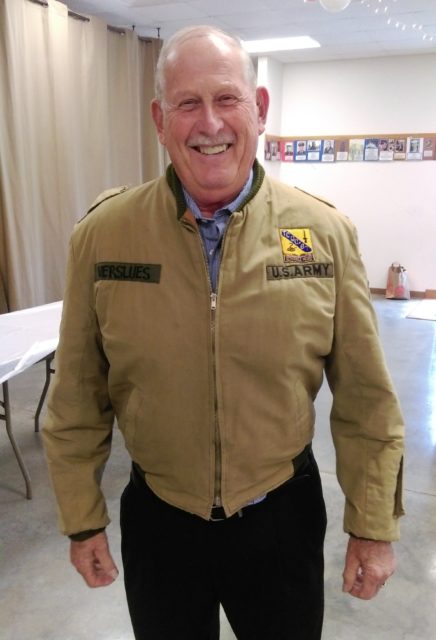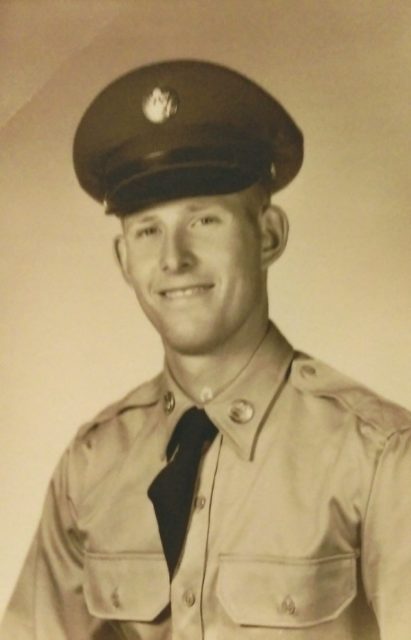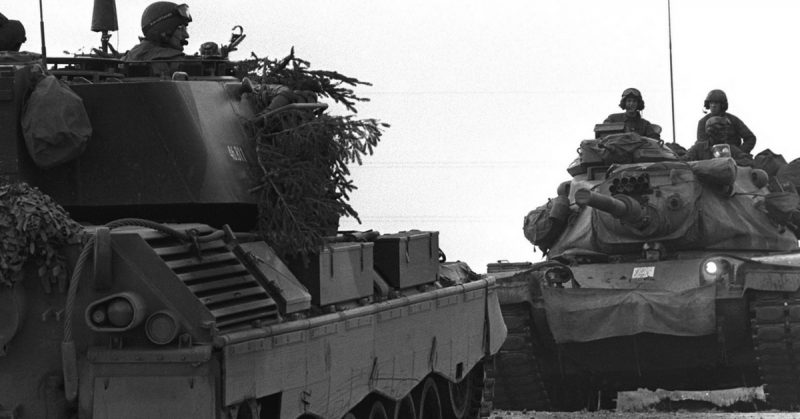War History online proudly presents this Guest Piece from Jeremy P. Ämick, who is a military historian and writes on behalf of the Silver Star Families of America.
Raised in the Taos, Mo., area, Bob Verslues began his freshman year at Fatima High School in the late 1950s but soon postponed his education to assist his father on the family farm. This decision, he explained, did not delay the inevitability of the Vietnam era draft as he and scores of young men from the community received the call to serve their nation.
“My draft notice came in early 1965 and they sent me to Ft. Leonard Wood (Mo.) for basic training,” said Verslues. “Somewhere along the line they gave us aptitude tests and I guess they decided I would be a good fit for armored training.”
During the summer of 1965, the young soldier attended the U.S. Army Armor School at Ft. Knox, Ky., where he learned to serve as an armor crewmember on the M60A1—a medium tank weighing nearly 50 tons and armed with a 105mm gun.
“You basically learned anything and everything to do with the operation of the tank,” Verslues recalled. “I started out as a tank driver and later worked my way up to different crew positions.”
During the latter part of his armor training, Verslues and his fellow soldiers received orders for their initial duty assignments. As their names were read of a list, many of the soldiers with whom he trained received assignments for service in Vietnam.

“They told me that my orders were for duty in Germany,” he said, “and I guess I let out a sigh of relief. It was one of those situations that since I was drafted, I had no idea where I would be sent,” he added.”
Assigned to the 14th Armored Cavalry located in the small Bavarian community of Bad Kissingen, Verslues recalls being engaged in an assortment of duties that included mobilization drills to prepare them for rapid deployment in a crisis.
On other occasions, the veteran explained, they traveled to nearby training areas at Wildflecken to conduct maneuvers and maintain proficiency with their tanks. While in Germany, Verslues said, he rose to the position of acting tank commander.
“I remember that while we were on one of these exercises, we threw one of the tracks off of our tank,” he said. “We had to basically camp with the tank for 2 or 3 days, eating rations and all of that kind of thing, before they could get someone out there to get the track back on the tank.”
Although far removed from the war in Vietnam, Verslues and his fellow soldiers were on the front lines of another war that raged for more than four decades and brought the Soviet Union and United States to the brink of a nuclear exchange—the Cold War.
In 1961, the communist-controlled German Democratic Republic (East Germany) began construction on what became known as the “Berlin Wall,” which, consisted of a concrete barrier separating East and West Berlin in addition to miles of barbed wire fencing interspersed with fortifications and guard towers.
According to an article retrieved from the History Channel website, the primary purpose of the barrier was to prevent the exodus of “skilled laborers, professionals, and intellectuals” from escaping East Germany and entering into the democratic West Germany.

“My platoon began a cycle of going to a border camp near the Czechoslovakian border for 30 days at a time,” Verslues explained. “We brought all our rations and supplies with us and would spend our time there patrolling the border between East and West Germany.”
He continued, “I drove a lieutenant in a Jeep around the perimeter of the fences in the rural areas to observe what the East German guards were doing on their towers. There were times it snowed so much while we were up there that it was fencepost deep and you could hardly get around.”
When their 30-day tour was finished, Verslues said, his platoon would return to their regular duty station in Bad Kissingen for a period of 3-4 months before returning to the border camp to relieve another platoon and again conduct border patrols.
While in Germany, Verslues took night classes and earned his high school diploma, rose to the rank of Specialist 5 and won a trophy for being the top tank gunner. In April 1967, he returned to the U.S. and received his discharge from the military. He remained in contact with his girlfriend, Rosie Hoelscher, during his overseas duty and the couple married on July 20, 1968.
In the years following his discharge, he and his wife raised two children and he went on to complete a lengthy career in law enforcement. The Army veteran has also gained a reputation in the community for the quality honey he harvests and sells from the beehives on the hills surrounding his Jefferson City, Mo., home.
When reflecting on the two years he spent in the U.S. Army during the mid-1960s, Verslues affirmed that this brief period of his life not only strengthened his affections for the woman whom would later become his wife, but also provided him with the foundation for the career he chose to pursue.
“Being in the Army, even for such a short time, really set my mind on public service and I knew that I wanted to carry on with that when I left the military,” said Verslues. “That’s probably the biggest reason I became a police officer.”
He added, “But honestly, it was kind of scary to leave the states and my girlfriend, knowing that I wouldn’t be home for nearly two years. But Rosie and I wrote to each other whenever we had a chance and she kept all of our letters from back when I was in the Army. In fact,” he smiled, “she still has them in an old shoebox upstairs.”
